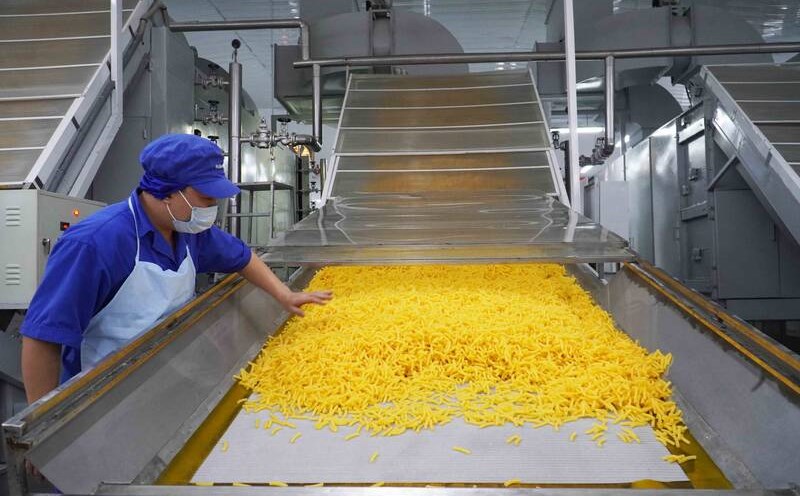Vietnam's stock market started the new week with a flourishing session, sharing the same trend as the global market.
The market had a positive trading session yesterday in terms of scores, liquidity and investor sentiment. VN-Index increased by nearly 16 points, a significant increase after many sessions of struggling around 1,270 points.
Liquidity in the whole market has broken out, reaching more than VND 21,400 billion, expecting cash flow to truly participate, not a weak technical recovery session. Despite the sharp increase in the stock market, foreign transactions are still a point except for a net sale of nearly 300 billion VND.
The increase was supported by large-cap stocks, but not only focused on real estate stocks, Vingroup stocks as in previous sessions.
The bright spot is the breakthrough of the banking group, with TCB increasing by 6.5%, along with stocks such as CTG, HDB, VPB recording an increase of 1% - 2%.
The real estate and securities groups also sent positive signals, reflecting the cash flow circulating between industries with growth potential.
Analysts from DSC Securities Company (DTCK) believe that the market will continue to recover, but there is a clearer differentiation between industry groups and the level of volatility may increase gradually.
VN-Index may adjust to around 1,250 points and fluctuate accurately while waiting for clear information from trade negotiations between Vietnam and the US.
According to the current export structure, the three main industries including textiles (27%), wood products (13%) and seafood (6%) account for 46% of the total export value to the US of domestic enterprises. These are industry groups that have a great impact on the socio-economy, but are facing a high risk of being taxed.
Experts say that many businesses in this group have limited financial foundations and little defensive space when costs increase. If they are subject to heavy taxes, they may lose orders, be forced to narrow production and cut labor.
However, there are risks. Talking by industry group can create local positive results. Industries that reach favorable agreements will be likely to increase strongly, especially in the context of export-exported stocks currently being deeply discounted.
"For investors, this is the time to closely monitor the developments of trade negotiations and choose to invest in large-scale enterprises, stable international customers and a solid financial foundation. If the right industry group is selected to remove barriers early, the current investment decision can become a strategic "wave" in the medium and long term," DSC experts commented.
Experts from Asean Securities Company also recommended that short-term investors should limit chasing, closely monitor the tax situation, and consider weak stock structures in the portfolio.
Long-term investors can consider gradually disbursing in fluctuating sessions, focusing on stocks that are not affected much by tariffs, benefiting from economic recovery, growth in business results, low valuations and high cash dividends, prioritizing banking, securities, public investment and retail stocks.











